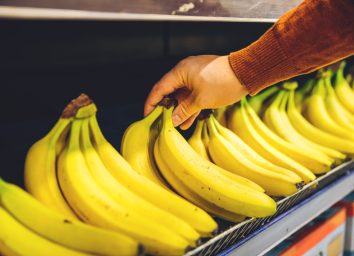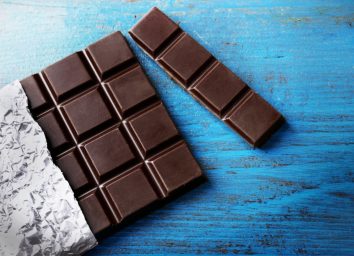20 Foods That Put You in a Bad Mood
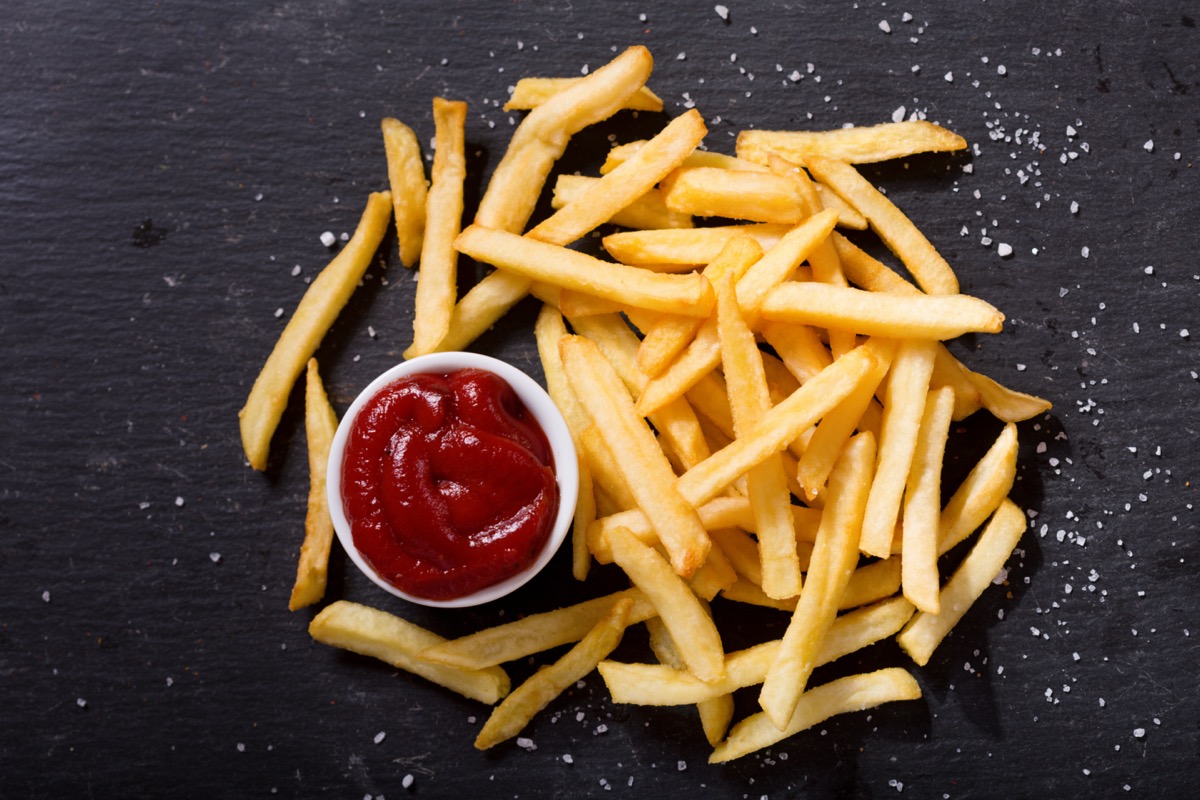
While there’s nothing wrong with indulging in some mac and cheese you used to eat as a kid or munching on some chocolate every now and then, it’s also important to keep in mind that what you’re eating truly has a direct correlation to your mood. Not only is there a relationship between what you consume and your physical health, but there’s a direct line to your mental and emotional health as well.
It’s important to remember, however, that it’s a two-way street: Foods directly influence our brain chemistry (even if only temporarily), but moods also influence food choices—which is why understanding what different foods do for you is an important part of leading a healthy lifestyle. We asked health experts to weigh in, so we can find out which foods lead to plummeting moods, anxiety, and troubled sleep.
Soda

If you’ve spent more than a few minutes on EatThis.com, you’ll know how anti-soda we are. Given that the toxic drink also puts you in a bad mood, it’s a bit sad people sacrifice so much for such a short-lived fix. “Soda drinks contain simple sugars that are quickly absorbed into the bloodstream,” explains celebrity nutritionist and health consultant Mikaela Reuben. “This causes a rapid rise in energy and then a crash, which affects blood sugar control, energy levels, and mood.” Zero calorie diet sodas are especially harmful, and not just because of the linked-to-cancer aspartame. A number of studies have shown that people who drink at least two diet sodas a day are likely to wind up with a “soda belly,” which protrudes out like a beer belly. No thanks!
High Sugar Juices and Cocktail Mixers
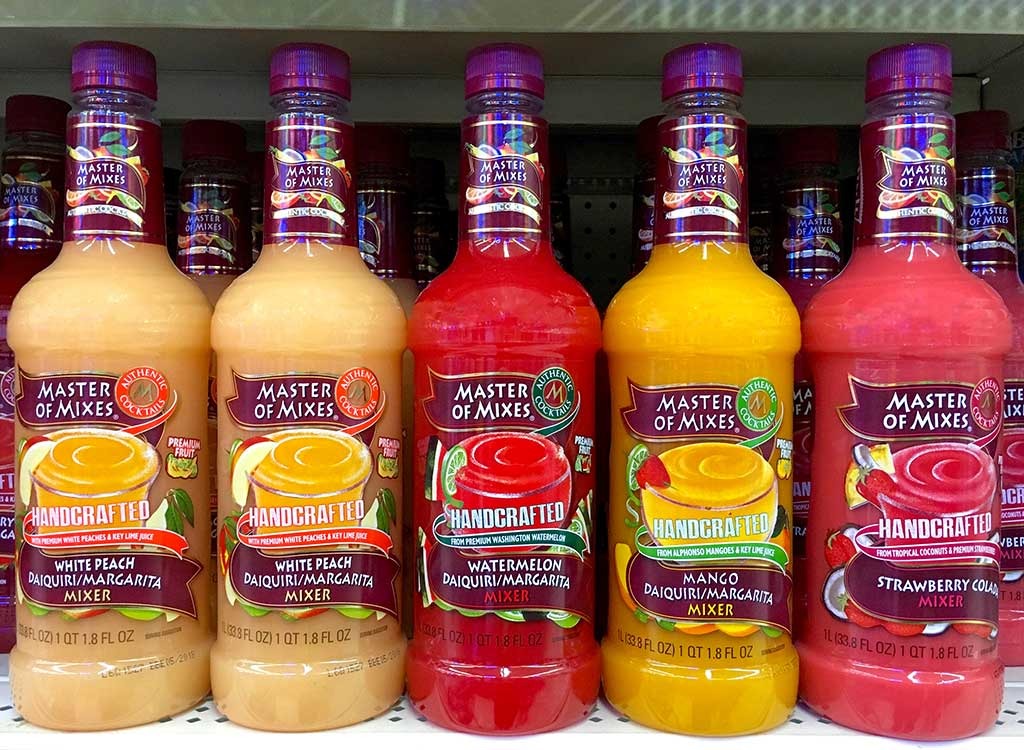
You might be mixing up your own drinks at home, but those fruit juices and cocktail mixers tend to be loaded with sugar. “They’re a lot like soda drinks when it comes to their sugar content,” says Reuben. “The effect of their high sugar content is the same; the sugars will be released into the bloodstream, allowing an energy boost to take place but ultimately ends in a low point, leaving one to feel fatigued, irritable, and depressed.”
Bagels
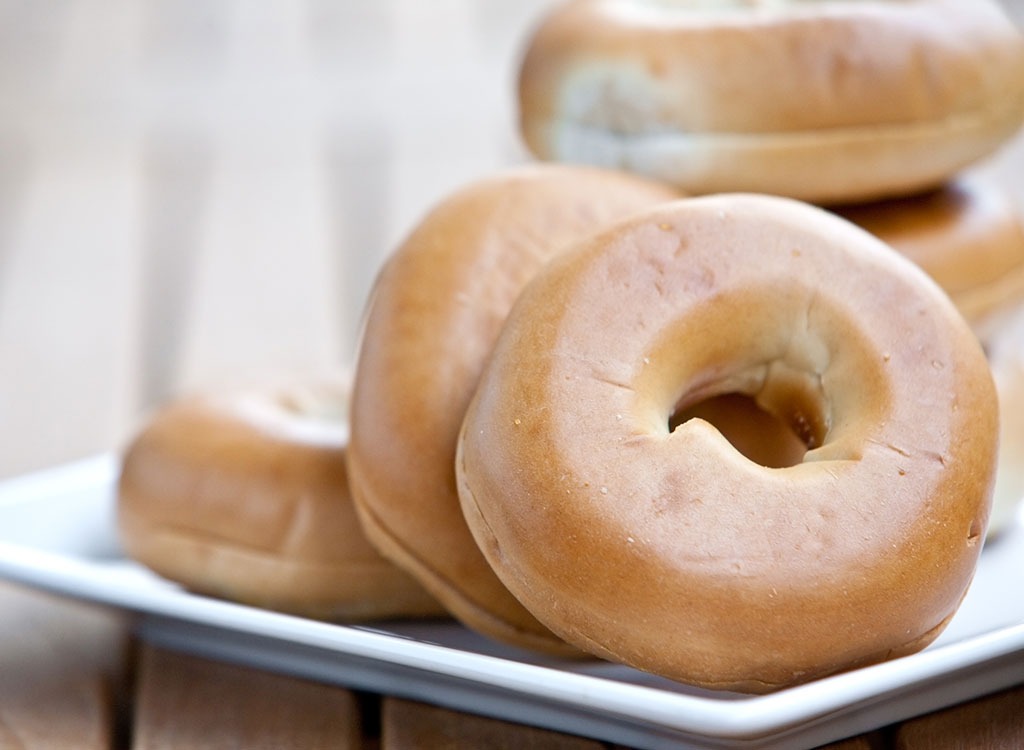
Another food guilty of spiking blood sugar and causing it to crash, bagels’ simple carbs will have you feeling all over the place. Bagels are made from white grains, which have no nutritional value (i.e. empty calories) and the spike in blood sugar will be especially sharp if the bagel isn’t consumed with protein (like peanut butter). If you want a carb fix, reach for “good” carbs like sweet potatoes and steel-cut oats to keep your blood sugar steady; they’re both nutrient-rich options that are high in satiating fiber.
Agave Nectar

“This ingredient contains excess fructose. This increases the risk of metabolic syndrome, which primes you for brain shrinkage and mood instability,” explains Kelly Boyer founder and CEO at Paleta. “While all sugars should be consumed in moderation, try using 100 percent maple syrup or local honey instead of agave; these healthier options contain key minerals and plant antioxidants that promote health.”
Vegetable Shortening

Boyer stays away from vegetable shortening because it’s made with inflammation-promoting industrial fats and the high levels of omega-6 fatty acids that can tamper with mood and healthy insulin levels by blocking out brain-building, mood-enhancing omega-3 fatty acids. She recommends choosing olive oil or pasture butter from grass-fed cows because they contain anti-cancer properties and have been shown to slash belly fat and lower risk of heart attacks.
Cold Cuts
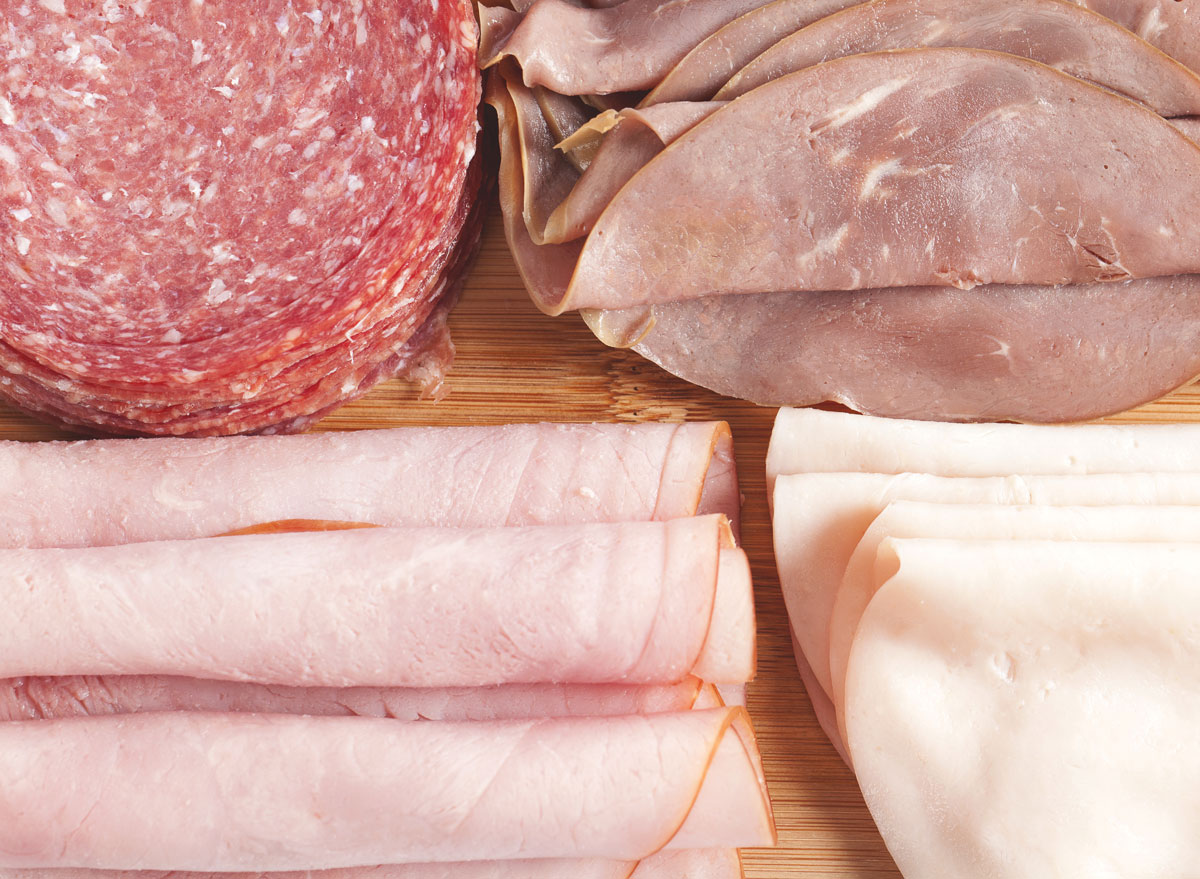
Packaged meats like ham, bologna, hot dogs, and even turkey, can contain high levels of energy-sucking, mood-altering nitrates, food preservatives, colorings and additives that cause mood swings, water retention and bloating, and headaches. Boyer recommends roasting your own turkey or chicken breasts and slicing it yourself for a healthier (and cheaper!) alternative.
Packaged, Processed Seeds
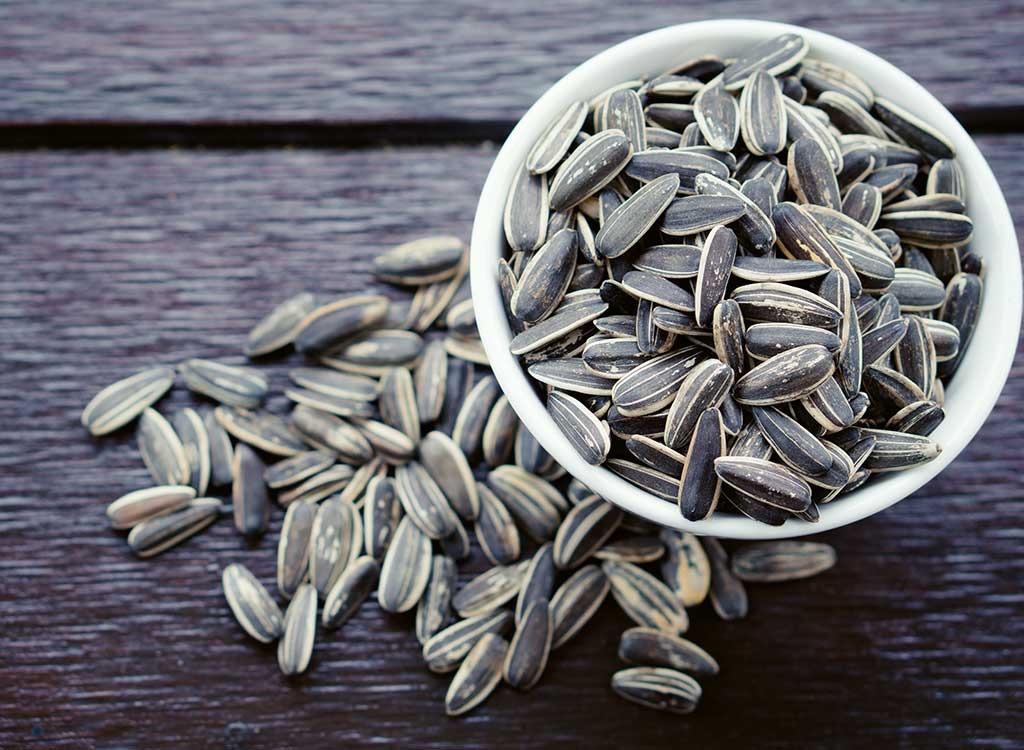
“While a great choice when consumed raw or roasted yourself, the processed versions are often coated in a preservative called potassium bromate, which blocks iodine from being absorbed by the thyroid,” says Boyer. “When your thyroid can’t function properly, you may not be able to either. Psychiatrists often check their patients’ thyroid levels when dealing with depression. They’re also often loaded with sodium and questionable food additives.”
Salted Peanuts
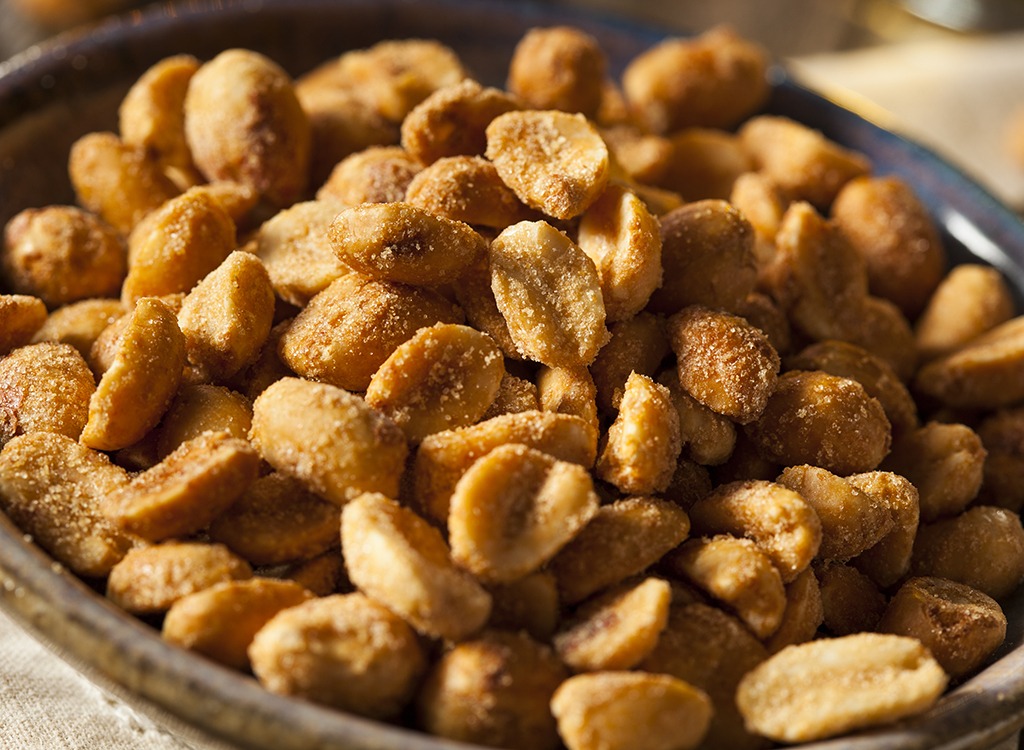
Reuben advises that salted peanuts be nixed from most diets. “Most peanuts you buy at the store contain high amounts of sodium and often a food additive called MSG, which is an artificial flavoring that leaves one feeling depressed, weak, fatigued, and often moody or with headaches.” Boyer concurs, adding that she recommends making your own mix of raw walnuts, almonds, and Brazil nuts. “Some new research is looking at rosemary as a potential brain-protecting herb, so toss your raw nuts with some rosemary and a pinch of sea salt, and then roast at home.”
Baked Goods
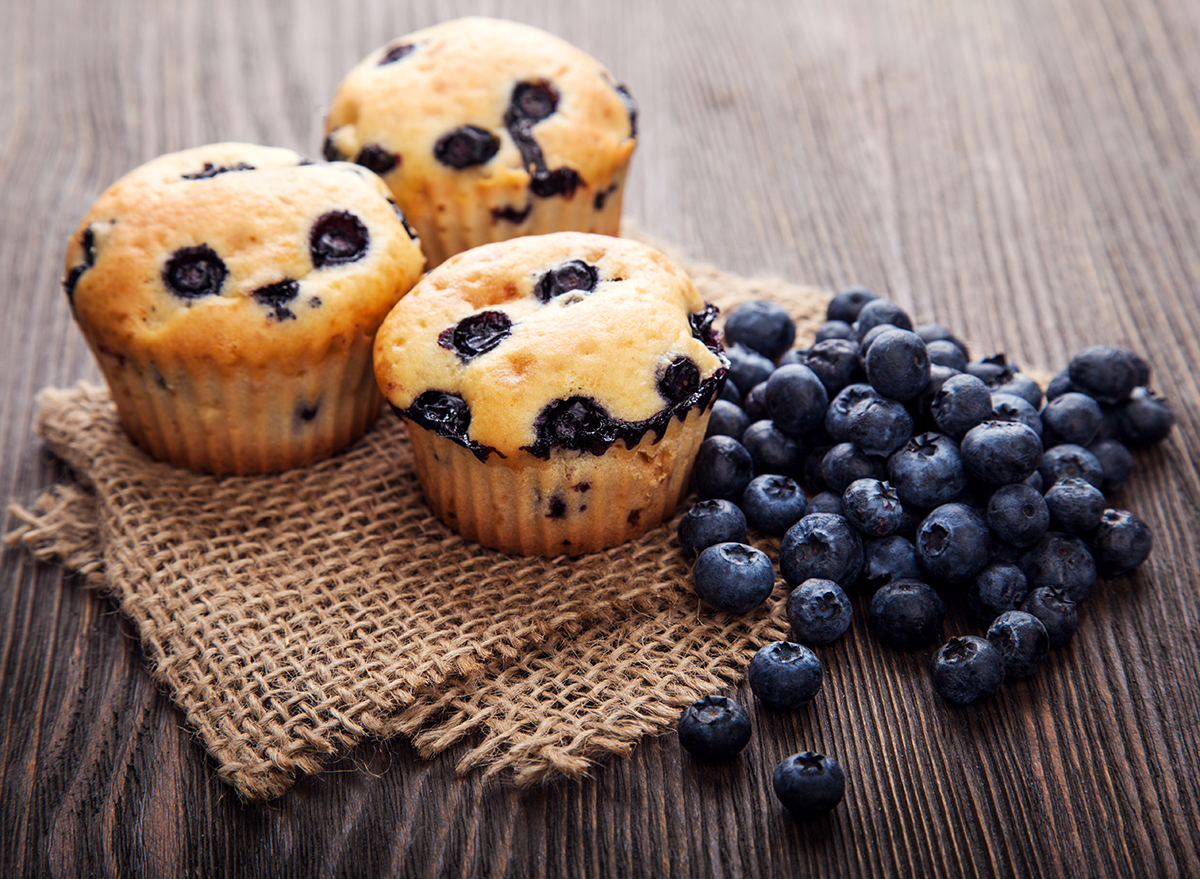
Traditional baked treats like cookies, muffins, cakes, and pies all contain high amounts of refined sugars and saturated oils—all of which lead to someone feeling heavy, lethargic, depressed and in constant mood fluctuation. While sweets should always be considered an indulgence, there are surprisingly tasty and exceedingly healthier alternatives based on nutritious ingredients.
Margarine

“Margarine contains high amounts of processed saturated fats, which are very different from the fat in healthy options such as olive oil, nuts or avocado,” says Reuben. “The consumption of margarine can cause an imbalance in blood sugar, leading to rapid mood swings and weight gain.”
French Fries

Unless the restaurant you are buying from bakes their chips, which is not often, you’ll most likely be consuming a handful of those delicious fries full of refined carbs, saturated fats, and high amounts of salt. This can wreak havoc on your mood. “The aforementioned refined carbs, saturated fats, and salt you find in traditional fries cause a peak in energy to take place, where one feels good and alert, but ends with a drop, leaving one feeling sluggish, irritable, tired, and foggy,” explains Reuben.
Canned Foods
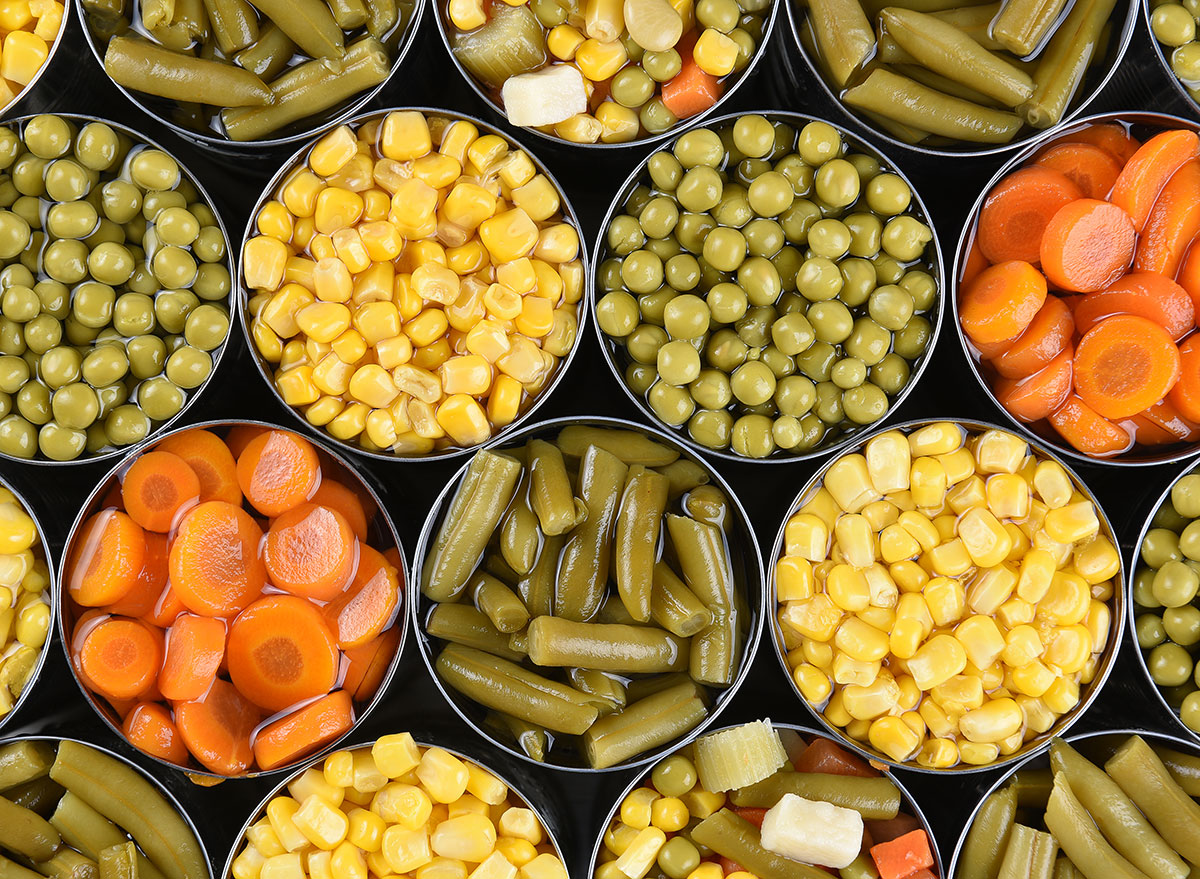
Sodium levels aren’t the only thing you should be watching when scanning the canned food aisle. “When purchasing canned foods, I always recommend ensuring the label states ‘BPA Free’ because this chemical additive is linked to a number of chronic mood disorders, such as depression and anxiety,” says Reuben.
Processed Foods

We already know processed foods affect our waistline since most contain high amounts of refined sugars, saturated fats, preservatives, and many additives to keep them shelf stable and tasting good for a long period of time. “These foods completely disrupt our mental and emotional functions, throughout the process leaving one feeling depressed, exhausted, anxious, tired, unmotivated and uninspired,” cautions Reuben.
Coffee

Coffee is a double-edged sword: in moderation, it can be fantastic; if overconsumed, it can wreak havoc. “Coffee can have an immense effect on one’s mood, depending on how much of it is being consumed and how it is being utilized,” says Reuben. “When we take in coffee, our bodies produce cortisol, the main stress hormone. We get a peak in energy, resulting in our physical and mental functioning feeling turned on. When this spike crashes, one will often feel exhausted, with low energy both mentally and physically, and it can lead to more chronic disorders such as adrenal fatigue, mood swings, depression, anxiety and so forth.” Find out more with these 27 Things Health Experts Think About Coffee.
Cereal
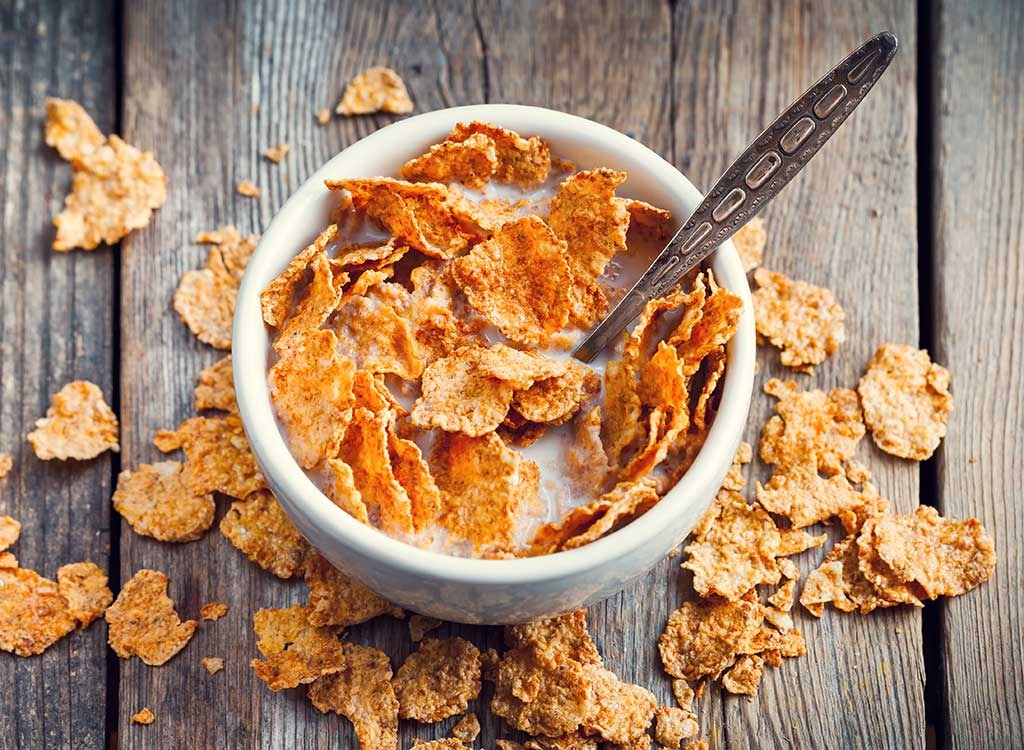
Most store-bought cereals contain processed ingredients and are high in refined carbohydrates (due to the refining of their original wheat, corn or oat grain). “Eating refined carbohydrates can send your blood sugar on a roller coaster, causing mood swings, and has been shown to cause an increased risk of depression,” says board-certified holistic health coach Kerri Axelrod. “Instead, opt for a breakfast filled with protein and complex carbohydrates, which will stabilize your blood sugar and keep you fueled and better prepared to tackle the day.”
Wheat
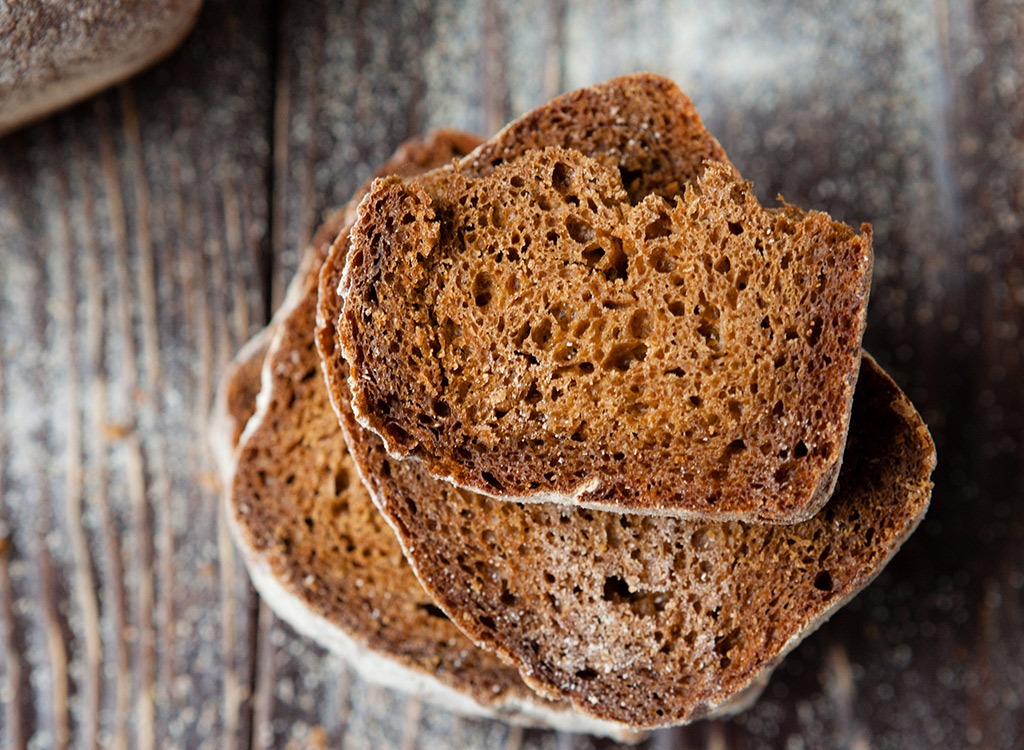
For many people, wheat can make them feel moody, even if they think their tummies can handle it. “Gluten is the primary culprit of the mood-reducing quality of wheat,” says nutritionist and author Cassy Joy Garcia. “Aside from damage done to the gut, exposure to gluten (especially in substantial amounts) has been documented to actually cause mental fog, among other undesirable inflammation-related reactions.”
Dried Fruit
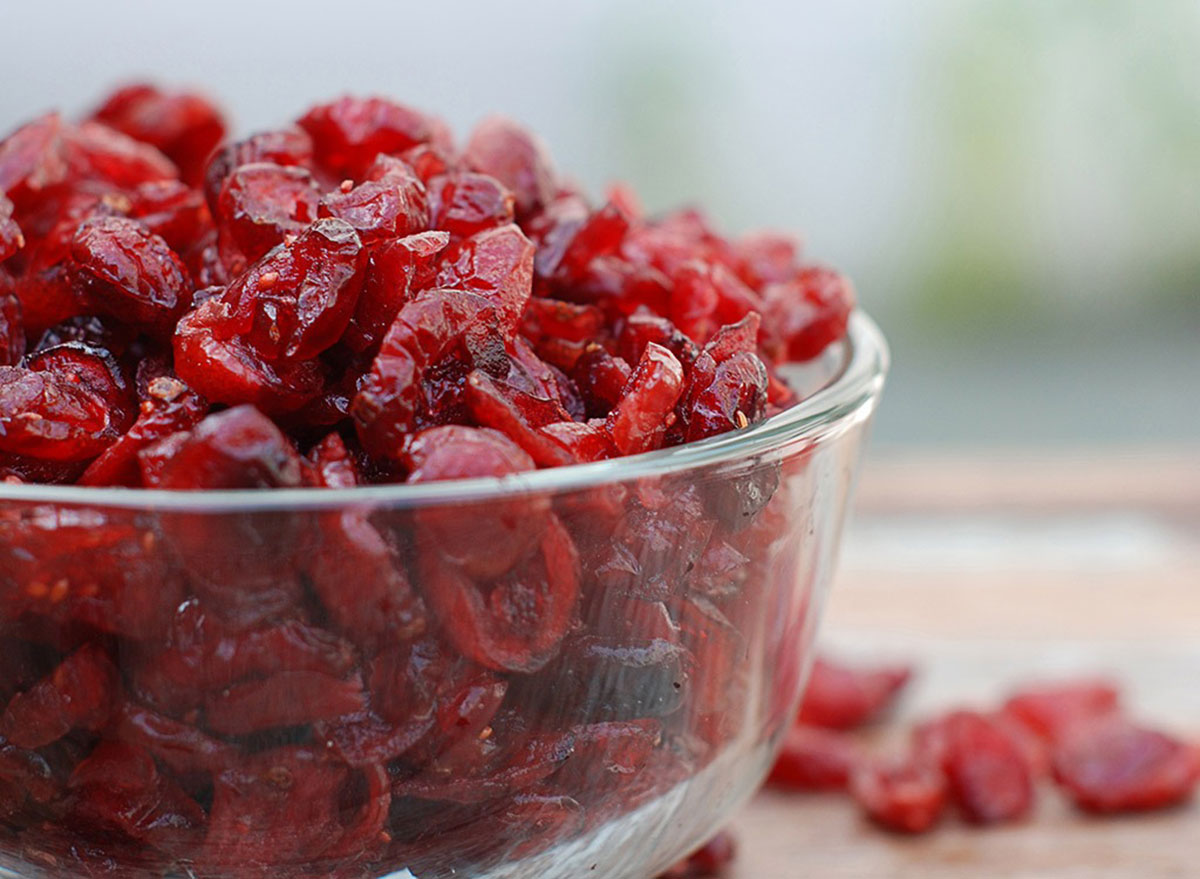
The problem with dried fruits is that they lose their water content in the dehydration process, so it’s very easy to overeat—meaning that you’re also over-consuming sugar (and often additives and preservatives as well). Garcia also notes that while the fiber in dried fruit helps mitigate a blood sugar spike, it can cause a gut disturbance if you eat too much. “Staying mindful of portions is great for the mood, but over-indulging can often overshadow positivity.” If keeping your portions in check is a challenge for you, try these 18 Easy Ways to Control Your Portion Sizes.
Alcohol

What goes up must come down—and alcohol is a depressant, after all. “While alcohol may cause a temporary feeling of bliss, the crash can often bring a mood down quickly,” says Garcia, who recommends supplementing with plenty of water, protein, sleep and an understanding that moderation is key can help combat the boozy blues.
Potato Chips
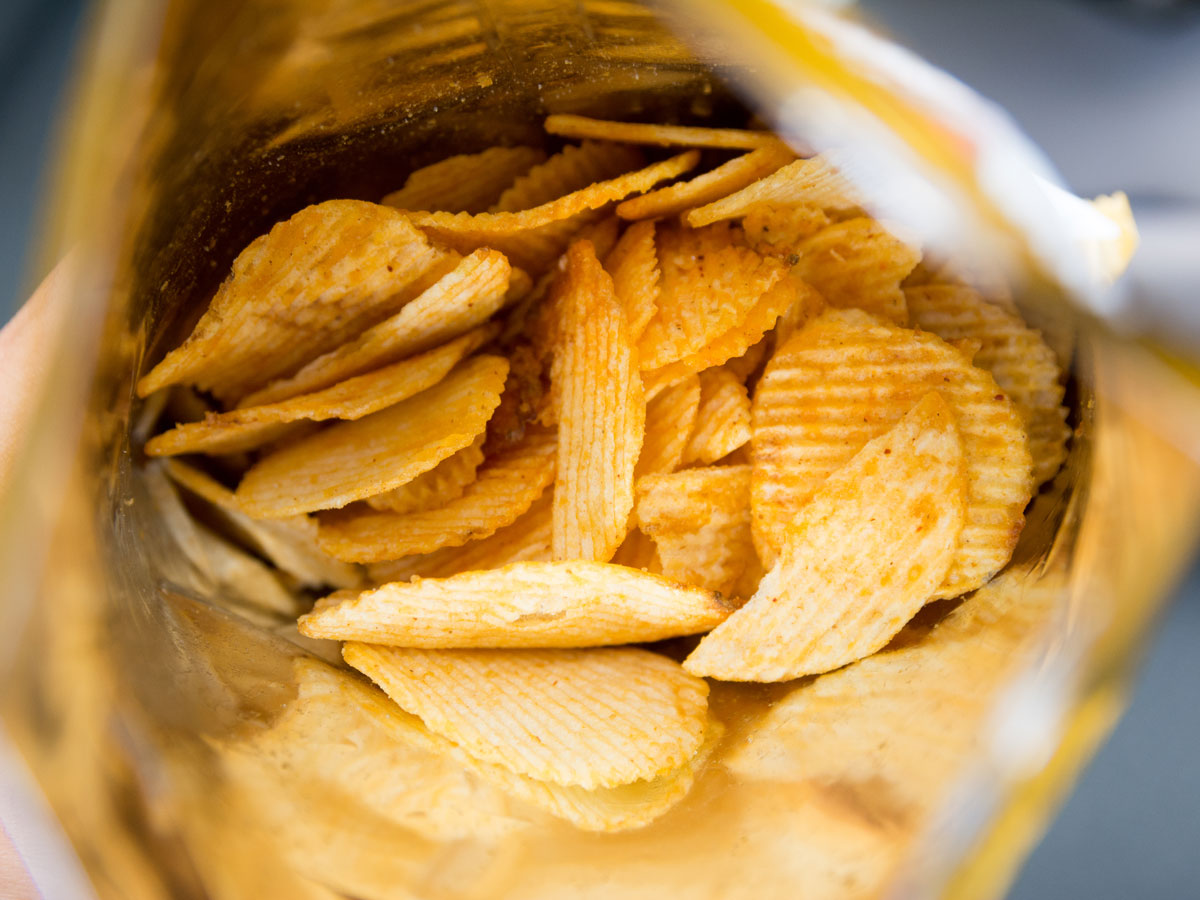
The majority of companies use a vegetable oil to fry their potato chips, known to contain a high dose of saturated fats and omega-6 fatty acids. According to Reuben, these fats work against the omega-3 fatty acids (the ones we want!), affecting mood by causing inflammation throughout the body and leading to various mental and emotional instabilities. Worried about inflammation? Fight back with these 30 Best Ant-Inflammatory Foods!

